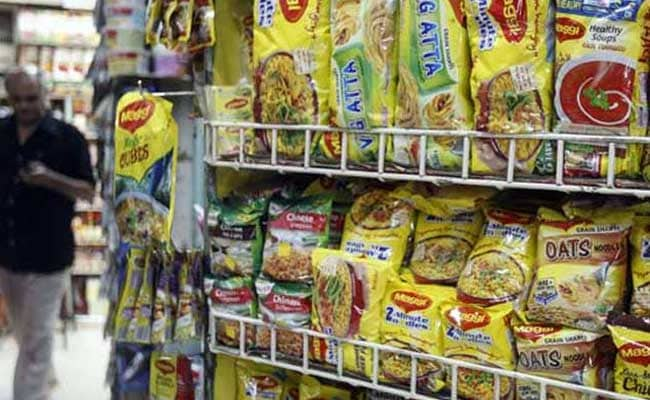
The regulator's findings in May led to a nationwide ban on its Maggi instant noodles and the company had to order a recall of the product a month later.
New Delhi:
The Food Safety and Standards Authority of India or FSSAI has moved the Supreme Court against Nestle's instant noodles Maggi, challenging a Bombay High Court order that had lifted a ban on the popular snack. Maggi had been banned in June after reports that some packets contained unsafe levels of lead.
In its petition, regulator FSSAI said the High Court should have appointed a neutral authority to select the Maggi samples for test but the court allowed Nestle to pick up samples on its own.
The move violated "principles of natural justice", FSSAI said, adding that Maggi should be banned until a neutral agency picks up the samples and performs tests.
Nestle, which had always maintained the product was safe to eat and continued to sell it in other countries, had resumed selling its Maggi noodles again in India after getting the green light to do so from government laboratories, the company said on Monday.
The Indian unit of the Swiss food giant Nestle SA has been grappling with its worst public relations crisis after local regulators reported in May that some packets of the Maggi noodles contained unsafe levels of lead.
"Following tests by government accredited labs in India showing Maggi noodles are safe to eat, Nestle India has announced that it has started selling the product again," the company said in a statement.
The regulator's findings in May led to a nationwide ban on its Maggi instant noodles and the company had to order a recall of the product a month later, which cost it more than Rs 440 crores.
In August the Bombay High Court overturned the ruling, calling it "arbitrary" and ordered fresh tests.
Last month Nestle said the laboratory tests had found that Maggi noodles were safe to eat. The company later announced it had restarted production at three plants in India and last week said those had also passed laboratory tests.
In its petition, regulator FSSAI said the High Court should have appointed a neutral authority to select the Maggi samples for test but the court allowed Nestle to pick up samples on its own.
The move violated "principles of natural justice", FSSAI said, adding that Maggi should be banned until a neutral agency picks up the samples and performs tests.
Nestle, which had always maintained the product was safe to eat and continued to sell it in other countries, had resumed selling its Maggi noodles again in India after getting the green light to do so from government laboratories, the company said on Monday.
The Indian unit of the Swiss food giant Nestle SA has been grappling with its worst public relations crisis after local regulators reported in May that some packets of the Maggi noodles contained unsafe levels of lead.
"Following tests by government accredited labs in India showing Maggi noodles are safe to eat, Nestle India has announced that it has started selling the product again," the company said in a statement.
The regulator's findings in May led to a nationwide ban on its Maggi instant noodles and the company had to order a recall of the product a month later, which cost it more than Rs 440 crores.
In August the Bombay High Court overturned the ruling, calling it "arbitrary" and ordered fresh tests.
Last month Nestle said the laboratory tests had found that Maggi noodles were safe to eat. The company later announced it had restarted production at three plants in India and last week said those had also passed laboratory tests.
Track Latest News Live on NDTV.com and get news updates from India and around the world

